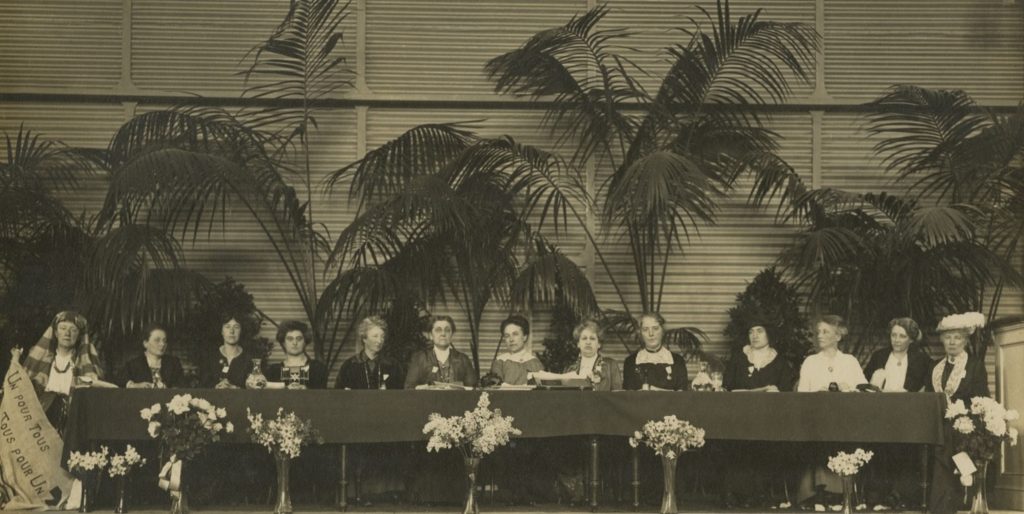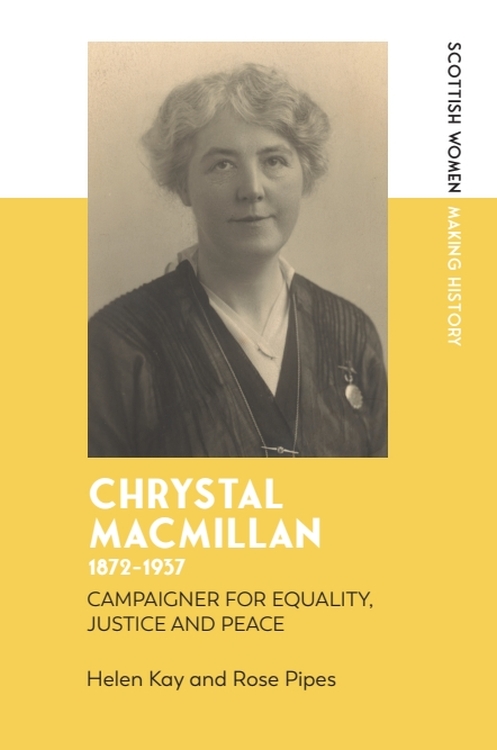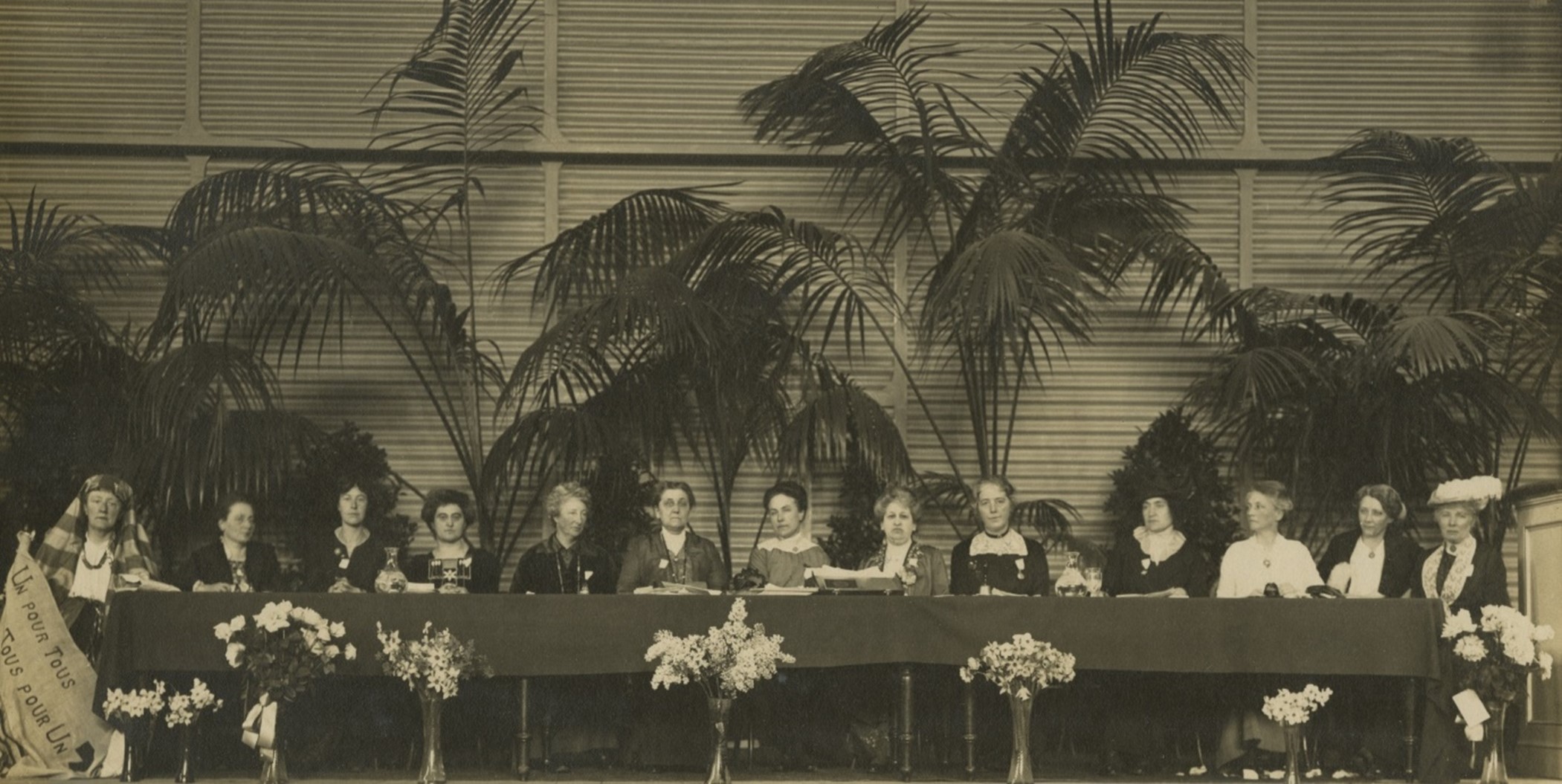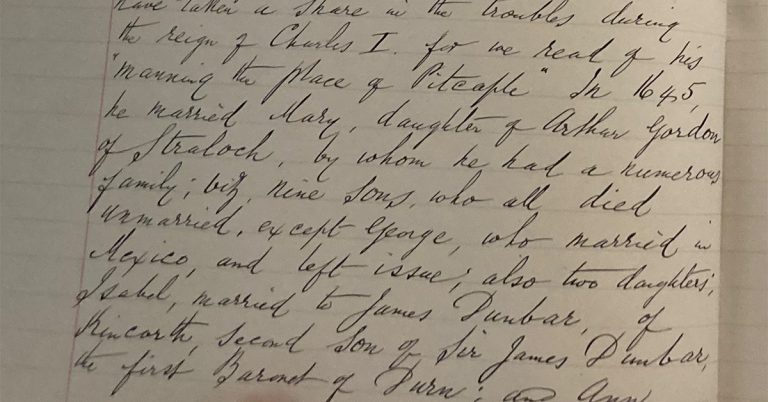
By Helen Kay and Rose Pipes
In the first half of the twentieth century, women were actively challenging the patriarchal discrimination they suffered in society and under the law, and Chrystal Macmillan was prominent among them. Born in 1872 into a prosperous Edinburgh family, she devoted her life to championing the cause of equality for women, both in Britain and internationally.

Who are the women, in the photo above, who came together in 1915, and what was the reason for their meeting?
In 1915, during the First World War, these 13 women from 13 countries guided the debates of the 1200 women who attended the International Congress of Women at The Hague. The women had travelled across war zones to discuss the causes of war and to advocate for peace, producing 20 resolutions which are still relevant for peace-making today. The women elected five delegates to travel throughout Europe and then to America, taking their message to 21 Ministers, one King and the Pope.
Chrystal Macmillan, who had organised the Congress, spoke for all those who gathered when she said, ‘We do not want a peace that is a negation of war, but a peace that is living and growing and active.’
Although the political leaders, all of them men, agreed that the method of mediation, as advocated by the women, was the best way forward to end the war, not one would take steps to stop the bloodshed.
The women met again in 1919, on the very day the Treaty of Versailles was published. On learning the terms of the Treaty, they were vehement in their opposition: ‘By guaranteeing the fruits of the secret treaties of the conquerors, the terms of peace tacitly sanction secret diplomacy, deny the principles of self-determination, recognize the right of the victors to the spoils of war, and create all over Europe discords and animosities, which can only lead to future wars.’
Chrystal Macmillan maintained her deeply held commitment to peace after the war, and helped to establish the Women’s International League for Peace and Freedom, a women’s peace organisation which continues today.
When did Chrystal Macmillan first come to public attention as a champion of women’s rights?
Chrystal Macmillan first drew widespread attention in November 1908 when she spoke in the House of Lords. She was there to present the legal argument that Scottish graduate women have a vote in parliamentary elections.
Five women graduates of Edinburgh University, Elsie Inglis, Frances Melville, Margaret Nairn, Francis Simpson and Chrystal Macmillan, applied for voting papers to elect two university candidates for the forthcoming parliamentary election. The women argued that, as graduates, their names had already been placed on the Register of the General Council, and that they should therefore be permitted to exercise the privileges available to all other graduates.
When the Registrar of Edinburgh University refused to issue voting papers to the women, they took their case to the Court of Session in Edinburgh. They lost the case, but raised sufficient funds to take an appeal to the House of Lords. Although Counsel advised the women against proceeding, Chrystal Macmillan wrote to Millicent Fawcett that ‘even if it were hopeless, the political effect of raising the question is worth the effort’.
In front of three Law Lords and a full public gallery, Chrystal Macmillan presented the Scottish women graduates’ case in terms of the legal statutes and the historical precedents. Inevitably, the Lords stuck to the principle of precedent and the women’s case was lost. Nevertheless, her performance was so admired by the press that they described her as the ‘Scottish Portia’.
Chrystal Macmillan, suffragist or suffragette?
Chrystal Macmillan was an active member of the Edinburgh National Society for Women’s Suffrage which was affiliated to the British organisation, the National Union of Women’s Suffrage Societies (NUWSS). Members of both societies used ‘constitutional’ non-violent methods in their campaigning, holding public meetings, presenting petitions to Parliament, organising processions, lobbying MPs and leading deputations to Ministers. Such women came to be known as ‘suffragists’. Speaking to a journalist in 1908, Chrystal Macmillan declared that she thought she ‘had been born a suffragist’.
She campaigned throughout Scotland, championing the cause of women’s right to vote and coping with hecklers, as she did when she spoke at a crowded public meeting in Dumfries:
‘All the different societies in the movement are working for the same object and that is the granting to women of votes on the same terms as it is granted at present to men. (booing)… Men who have the necessary qualifications are debarred at present only if they are paupers, criminals or lunatics. … Men have made a more comfortable world for boys and men than for girls and women, and the women now want the power to make the world more comfortable for the girls and women, without doing any harm to the boys and men (laughter and cheers).’
Working within the law to champion women’s rights
Chrystal Macmillan campaigned for women’s entry to the legal profession, and in 1924 she was called to the Bar in London. Although she worked in courts in London and the West Country, she continued with national and international work, using her legal knowledge to help draft and amend legislation that denied women equal rights.
Image credit: WILPF archive at the Women’s Library, LSE
About the Book

This historical biography of Chrystal Macmillan, one of Scotland’s most prominent campaigners for women’s equality, justice and peace in the early twentieth century, is the first account of her life and work.
Although Chrystal left no diary, the recollections of friends, obituaries and memorials provide a vivid image of a woman of considerable ability, commitment and courage.
Explore and order your copy of Chrystal Macmillan, 1872-1937
Find out more about the new series, Scottish Women Making History
About the Authors
Helen Kay is an independent researcher, with an interest in the women’s suffrage movement in Scotland and the early history of the Women’s International League for Peace and Freedom (WILPF). Since 2009, Helen has promoted interest in the work of Chrystal Macmillan.
Rose Pipes is a former commissioning editor and now an independent researcher. She is a co-editor of The New Biographical Dictionary of Scottish Women (EUP, 2018) and has published articles on Chrystal Macmillan as well as contributing to the Legal Landmarks project.
Explore related articles on the EUP Blog
5 Great Scottish Women You Might Not Have Heard Of…
Making Fields: Women in Publishing
Unwomanly women? Gender and technology at the end of the nineteenth century





